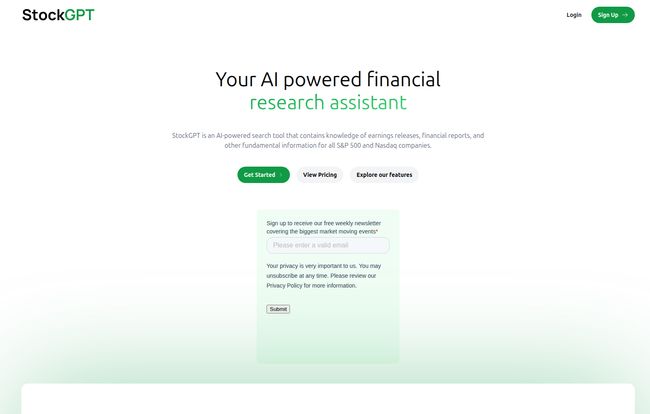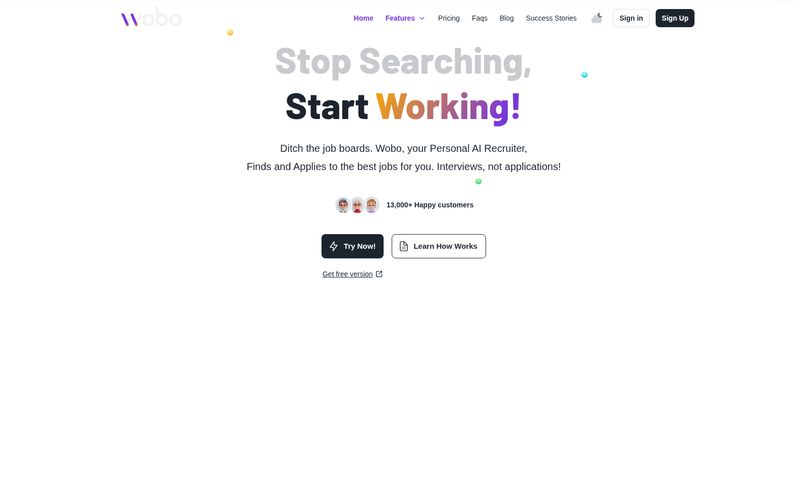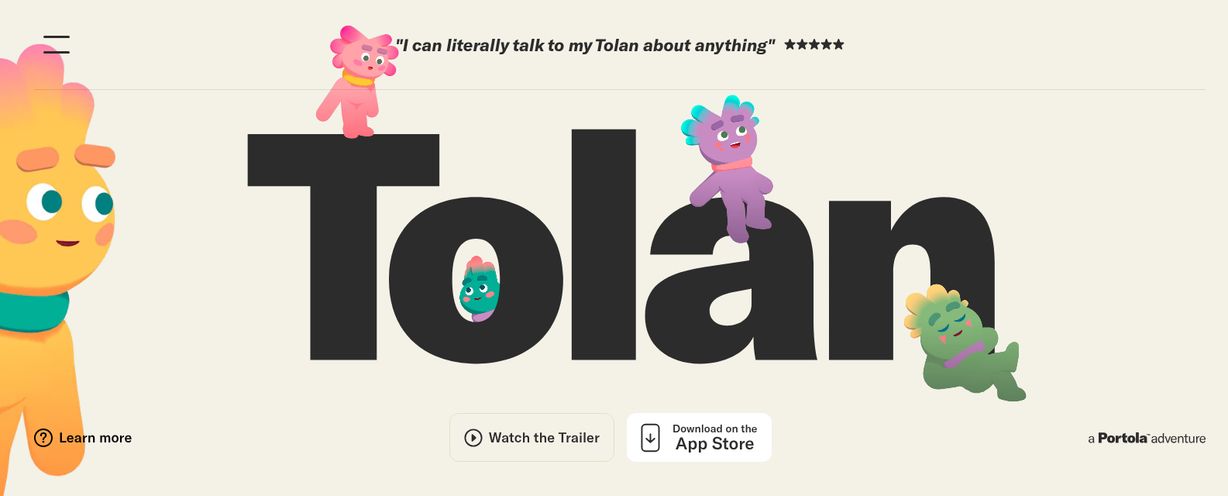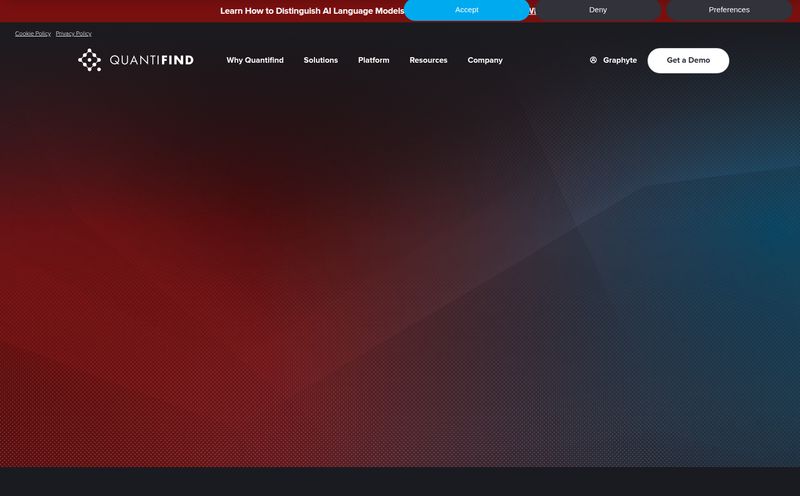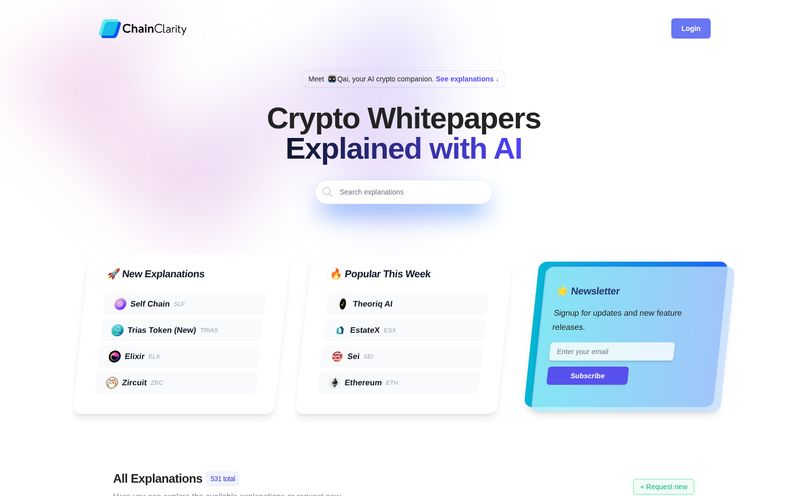How many times have you told yourself you were going to do some deep, fundamental analysis on a company, only to be stopped dead by a 150-page PDF of their latest quarterly report? It’s a slog. A real grind.
For years, the process of investment research has involved countless hours hunched over a screen, eyes glazing over as you scroll through financial jargon in a company's 10-K filing or try to pinpoint that one comment the CEO made during an earnings call. I’ve been there. I’ve lived that life, fueled by too much coffee and the fear of missing a critical piece of information. The information is all there, but finding it is like searching for a specific needle in a giant, continent-sized haystack made of other needles.
Then along comes the AI wave, promising to change everything. And now, we have tools like StockGPT popping up. It calls itself an “AI powered financial research assistant,” and I’ve got to say, my curiosity was piqued. But is it just another shiny object, or is this something that could genuinely change the game for retail investors and even seasoned pros? Let's find out.
What Exactly is StockGPT Supposed to Do?
So, what’s the big idea here? At its core, StockGPT is an AI-powered search engine that has been trained specifically on the financial disclosures of S&P 500 and Nasdaq companies. We're talking earnings call transcripts, financial reports, and all that dense, number-heavy documentation that companies are required to release.
Think of it less like a magic 8-ball for stock picks and more like a super-powered librarian for corporate finance. You don’t ask it, “Will Apple stock go up?” Instead, you ask, “What did Tim Cook say about supply chain constraints in China during the last earnings call?” and it zips through the documents to find you the exact quote. It’s designed to fetch facts, not fortunes. And in the world of investing, facts are your best friend.
My First Impressions and Key Features
Landing on their site, the first thing I noticed was the clean, no-nonsense design. It’s simple, green, and gets straight to the point. No fluff. I appreciate that. But let's look past the paint job and see what's under the hood.
Searching Transcripts Without the Fluff
This is the main event. The ability to just… ask a question in plain English is a huge time-saver. Instead of downloading a transcript and using CTRL+F to hunt for keywords like “inflation,” “growth,” or “headwinds,” you can pose a direct question. For instance, you could ask, “What are Microsoft’s growth drivers for their Azure cloud platform?” and it will pull relevant snippets from recent calls. This transforms research from a tedious manual task into a conversation.
The Big Promise of No Hallucinations
If you've played around with general-purpose AIs like ChatGPT, you know they sometimes… get creative. They can make things up with incredible confidence, a phenomenon known as “hallucination.” In finance, that’s not just unhelpful; it's dangerous. StockGPT makes a bold claim right on their homepage: “No Hallucinations.” They state you’re getting “accurate answers straight from our data.” This is because it’s not generating new text from scratch; it’s retrieving and summarizing existing information from the source documents. This commitment to data integrity is probably its most important feature.
Filters That Actually Help You Focus
While the basic search is powerful, the Pro version adds customizable filters. This is where things get interesting for serious research. You can narrow your search to a specific industry, company size (market cap), or timeframe. Want to see what all semiconductor companies said about inventory levels in the last two quarters? You can do that. This ability to slice and dice information across an entire sector is something that would take days to do manually. Its a powerful tool for comparative analysis.
Let's Talk About The Money and The Plans
Okay, so how much does this financial wizardry cost? The pricing structure is refreshingly straightforward, which is always a plus in my book. There’s a free plan and a pro plan, with the pro plan having monthly and yearly options.
Here’s a quick breakdown:
| Plan | Price | Key Features |
|---|---|---|
| Free | $0 / month | Access to all Nasdaq company transcripts, but limited to 5 searches per day. |
| StockGPT Pro (Monthly) | $7 / month | Unlimited searches, Nasdaq transcripts, and advanced search filters (industry, size, etc.). |
| StockGPT Pro (Yearly) | $49 / year | Same as Pro Monthly, but you save about 42% over the course of a year. That's a pretty significant discount. |
My take? The Free plan is perfect for casual investors or students who just want to look up a few things now and then. The 5-search limit is real, though—you’ll hit it fast if you’re falling down a research rabbit hole. The Pro plan is clearly aimed at active investors, financial analysts, and maybe even financial journalists who need this kind of data daily. At $49 a year, it's cheaper than a single stock trading commission at some old-school brokers. It feels very reasonably priced for the power it offers.
The Good and The Not-So-Good
No tool is perfect, right? After kicking the tires, here’s my honest breakdown.
What I really like is the sheer efficiency. It turns hours of work into minutes. The focus on accuracy and avoiding hallucinations is a massive plus, building a foundation of trust that’s often missing with other AI tools. And having access to up-to-date transcripts as soon as they’re available means you’re not working with old news.
On the flip side, the limitations are clear. The 5-search-per-day cap on the free plan feels a bit tight, but I get it, they need to encourage upgrades. The real power features, like the advanced industry filters, are locked behind that paywall. Also, the universe is currently limited to S&P 500 and Nasdaq companies. That covers a huge part of the market, for sure, but if you're interested in international stocks or small-cap gems, you're out of luck for now. Hopefully, they expand their database over time.
So, Who Is StockGPT Really For?
This isn't a tool for everyone, but for a few specific groups, I think it could be a real game-changer.
- Retail Investors: If you're serious about doing your own due diligence beyond headlines and forum posts, this is an incredible way to level up your research without needing a Bloomberg Terminal.
- Financial Analysts & Professionals: The time-saving aspect alone could justify the pro subscription. It speeds up the grunt work, freeing up more time for actual analysis and strategy.
- Business Students: The free plan is an amazing resource for school projects and learning how to analyze real-world company performance.
- Financial Writers & Journalists: Need to pull a specific quote from a CEO for an article? This is way faster than begging a company's PR department for a transcript.
Final Thoughts: A Worthy Co-Pilot
So, is StockGPT worth your time? In my opinion, absolutely. It's not an automated stock-picking machine, and it won't do the thinking for you. Thank goodness. What it does is streamline the most tedious part of research—the data gathering. It’s a powerful co-pilot that lets you, the human, stay in the driver's seat.
It democratizes access to information that was once the domain of those with expensive subscriptions and teams of analysts. By making financial data conversational and searchable, it empowers individual investors to make more informed decisions. The fact that you can try it for free makes it a complete no-brainer. Give it a spin, ask it a few tough questions, and see if it doesn't become your new favorite research buddy. I have a feeling it might.
Frequently Asked Questions about StockGPT
- Is StockGPT free to use?
- Yes, StockGPT has a free tier that gives you access to transcripts for all Nasdaq companies with a limit of 5 searches per day. For unlimited searches and advanced features, you'll need to upgrade to the Pro plan.
- How accurate is the information from StockGPT?
- StockGPT is designed to provide high accuracy by pulling answers directly from the source financial documents. It's built to avoid the “hallucination” problem seen in some other AIs, meaning it reports what's in the documents rather than making things up. Still, it's always good practice to cross-reference critical data points.
- What companies does StockGPT cover?
- Currently, StockGPT’s database includes all companies in the S&P 500 and Nasdaq indices. They have mentioned plans to expand this over time.
- Can StockGPT predict stock prices or give investment advice?
- No, absolutely not. StockGPT is a research tool, not a financial advisor. It processes and retrieves historical data from official filings. It does not make predictions, offer opinions, or provide any form of investment advice.
- How is StockGPT different from a general AI like ChatGPT?
- The key difference is its specialized data source and purpose. While ChatGPT has broad world knowledge, StockGPT is trained exclusively on a closed dataset of financial reports and transcripts. This makes it far more accurate and reliable for financial fact-finding and prevents it from pulling in irrelevant or fabricated information.
